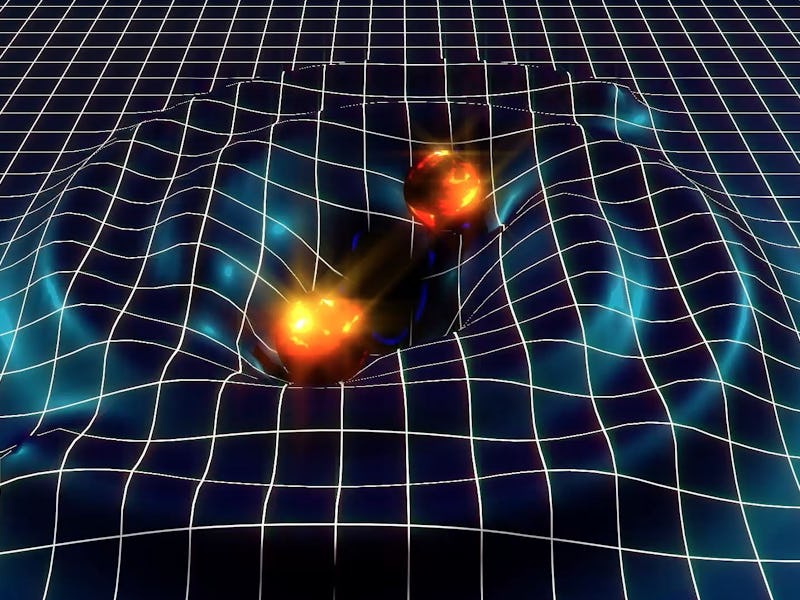Scientists Say We Might Find More Gravity Waves Within Five Years
The data from the LIGO discovery suggests these signals are more common than we thought.

The discovery of gravitational waves, announced in February by the Laser Interferometer Gravitational-wave Observatory (LIGO), was a groundbreaking moment for the world of physics research. It was a pretty lucky break that we happened to have a pair of ultra-sensitive instruments measuring gravitational waves pointed at a merging pair of black holes 1.3 billion years ago.
Now that scientists have had some time to noodle on the findings, they’ve begun to digest the rest of the LIGO data, and they’ve found some big implications on how the levels of cosmic background noise produced by gravitational waves is much greater that we previously thought.
For years, most scientists believed a constant stream of background gravitational noise, produced by black holes and neutron star events, was permeating the universe. Unfortunately, there was no way to actually measure and verify this theory.
In a new study published in Physical Review Letters, researchers from both LIGO and the Virgo Collaboration (essentially the European counterpart) describe how they used the binary black hole merger to estimate the gravitational radiation that would result from black hole mergers.
As a result, the researchers think there are 20 times more black hole binaries than previously estimated, and probably 10 times as much gravitational noise than we thought. Together, that means we could find more gravitational waves in just five years’ time when the LIGO and Virgo detectors are running at 100 percent.
The results are based on just a single cosmic event, so everyone keep their heads screwed on. But if that’s true, it would be great news for the physics community. Other researchers are already on the lookout for other cosmic events that could produce gravitational waves. To think we could measure more of these signals so soon was unthinkable just six months ago.